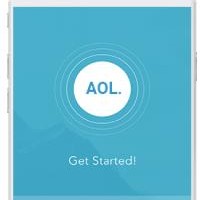Here’s Everything You Need To Know About FASTag
The electronic toll collection (ETC) system FASTag, initially rolled out as a pilot project in 2014, is about to become mandatory for all. The Ministry of Road Transport and Highways had earlier announced that vehicles would need to comply with the system during toll payments from December 1st, 2019. However, the deadline has been extended to 15th December 2019 now to extend electronic toll collection to 100%.
Quick look at ETC facts and figures
The stats represent a full-fledged rollout of the electronic toll collection system to streamline the process at the earliest.
Now, have a detailed look at the ETC along with other details for proper compliance.
FASTag – The meaning and what it entails
Quick look at ETC facts and figures
- 450 – Total number of toll plazas on state and national highways enabled for FASTag payment.
- 330% – Growth in daily average of FASTag sticker issuance from July to November 2019.
- 70 lakh – Total FASTags issued till 4th December 2019.
- 1.36 lakh – Highest recorded issuance of FASTag cards in a single day, on 26th November 2019.
The stats represent a full-fledged rollout of the electronic toll collection system to streamline the process at the earliest.
Now, have a detailed look at the ETC along with other details for proper compliance.
FASTag – The meaning and what it entails
Fastag are stickers that function on prepaid payment model and are rechargeable. They allow automatic deduction of toll charges for vehicles that cross FASTag-enabled toll plazas. An individual is required to affix the sticker on the vehicle’s windscreen for scanning and toll deduction.

Rolled out by the NHAI, FASTags are RFID-enabled stickers that allow automatic toll payments from the registered account or wallet linked to it. A registered individual no more needs to stop their vehicle at the toll plazas and pay manually. They can simply drive through it and the electronic FASTag payment is automatically credited from their linked account.
The ETC system brings numerous benefits for the vehicle owners as well as for toll collection authority and highway management authority.
Benefits of FASTags
- Saves time – Manual cash payments at toll plazas create traffic congestion as well as involve unnecessary time consumption. Implementation of these tags thus ensure hassle-free drives on highways while saving valuable time.
- Effective fuel-saving – Since the vehicles do not wait or stop at the toll plazas for payment, FASTag India also helps save substantially on fuel on the long run.
- Cashless payments – The system eliminates the hassle of carrying cash or change during toll payment.
- Easy online recharge – The system comes with easy recharge facilities through online payment methods like net banking, credit cards, debit cards, and more.
- Discounts and cash backs – Customers can also enjoy occasional discounts and cashbacks offered on FASTag prices.
- Instant notification – Users enjoy instant notification of the toll payments made through SMSs. Individuals are also notified if their account’s prepaid amount nears exhaustion.
- Environmental benefits – The ETC system also helps curb environmental pollution while reducing paper usage.
- Simplified highway management – 100% implementation of FASTag will also simplify centralised monitoring of Indian highways and enable processing of analytics for improved management.
Process to apply for and recharge FASTags
As many as 23 financial institutions have been authorised for FASTag account creation. Customers can choose from any of these institutions as per their convenience and approach their POS locations at various issuance agencies or toll plazas for account opening and registration. The one-time fee applicable to acquire a tag is Rs.200 and it is valid for a period of 5 years.
Read Also: What are some loopholes in the new FASTag electronic toll collection scheme introduced in India?
Recharging FASTags is simple and straightforward. Individuals can make required FASTag payment towards their dedicated accounts both online as well as offline. The minimum rechargeable amount for the purpose is Rs.100, and the maximum can extend up to Rs.1,00,000.
Document requirement for registration of FASTags
The documents required for registration of FASTags are listed below.
In case of individuals, the documents required are as follows.
- The concerned vehicle’s RC (Registration Certificate)
- Vehicle owner’s photograph (Passport-sized)
- KYC documents of the individual, which can include Aadhaar Card, Voter ID Card, Passport, Driving License, etc.
While the first two documents are applicable in case of corporate vehicle owners, their KYC documents differ on a case-to-case basis. A corporate applicant can thus check his/her KYC document requirement listed on the official website for FASTag registration.
With these details in hand, one can proceed to register his/her vehicle for the ETC system and drive on the highways conveniently. To simplify their travel experience, they can also opt for Pocket Insurance and Subscriptions such as a Road Trip Cover from Bajaj Finserv to enjoy accompanying benefits other than financial coverage of losses faced while travelling.








Comments